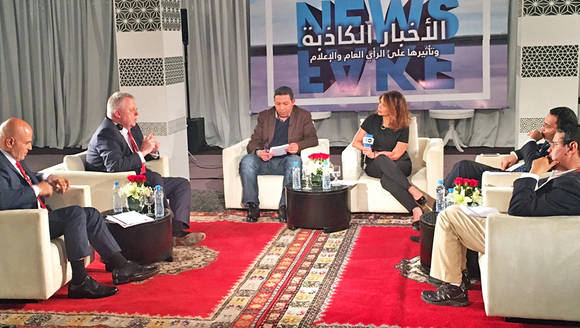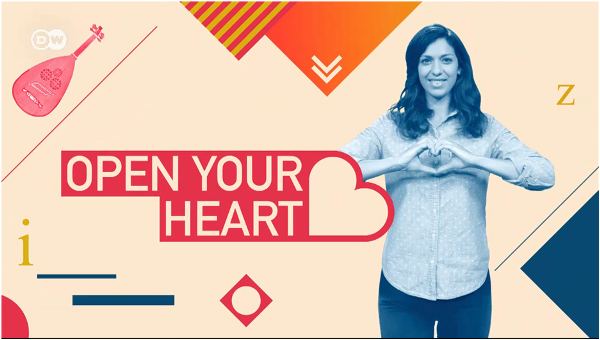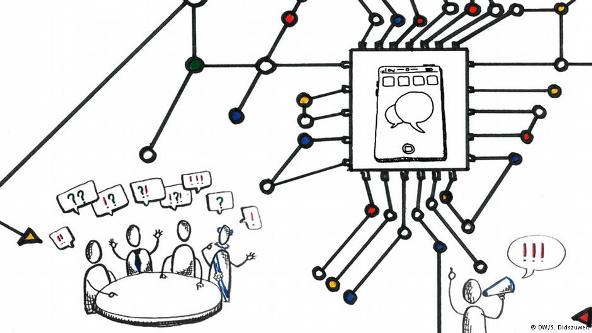Search Results for Tag: DW-AKADEMIE
DW shows the world why ‘climate action needs media freedom’
At the COP23 in Bonn, DW raised awareness of the important role of media in informing the public about the complicated issues surrounding climate change. During the UN climate conference, DW Akademie held multiple workshops organized around the motto “climate action needs media freedom.”
During the conference dozens of journalists were invited to Bonn to connect with climate activists and other journalists from around the world to share ideas and expertise. Participants learned about how to report on climate change issues and increase coverage in affected regions.
DW Akademie emphasized how the media provides an essential platform for dialogue in finding sustainable solutions to social problems caused by climate change.
Ten journalists from pacific islands were trained by DW Akademie in advance of COP 23 to report on the conference for media outlets at home. Another multimedia training brought 13 journalists from the Fiji-Islands, Papa-New Guinea, Samoa and other pacific states to Bonn for an exchange of expertise on climate change reporting. Other workshops brought journalists from Somaliland, Myanmar Sudan, Namibia and Jordan.
DW also launched a multimedia project called Kids4climate, which is intended to raise awareness of climate issues among children. It works by providing examples of activities that kids have initiated such as planting trees or organizing a “ride your bike to school” day. The videos also feature activities that kids and families can do together.
And on the sidelines of COP23, DW brought together the mayors of Pretoria in South Africa and Pittsburgh, Pennsylvania in the USA for a radio discussion broadcast on DW’s World in Progress. They spoke about similarities between their two cities in looking toward the future and shed light on how climate change is a problem that unites cities around the world.
The discussion provided an example of how the media can provide a platform for public officials to openly exchange ideas on how to make their communities more sustainable.
How traditional media is battling fake news
 Mobile news content is where most readers turn to for their daily intake of information and entertainment. And the rapid-fire mobile news environment has created fertile ground for for fake news and poor-quality content. This is a hugely important topic for producers of digital news.
Mobile news content is where most readers turn to for their daily intake of information and entertainment. And the rapid-fire mobile news environment has created fertile ground for for fake news and poor-quality content. This is a hugely important topic for producers of digital news.
During a recent conference with media partners in the Moroccan capital Rabat, Peter Limbourg, DW’s director general, joined representatives from Moroccan media and politics and underlined the importance of ensuring quality in digital media. Limbourg showed how the standards of accuracy, verification and thorough reporting by “traditional” media can set an important example as traditional shifts to mobile. The talk also focused on how to distinguish fake news from bad journalism and how DW ensures a high standard of quality across all outlets.
DW’s international focus means that working with partners around the world is essential to building a foundation for new ideas and cooperation.
Hespress is a Moroccan example of successful digital media that is produced independently with a high standard. Founded ten years ago, today it is the country’s top news website and is one of the most-popular sites in the Maghreb. The success of the website is centered around its digital first strategy and understanding how digital media is becoming the primary source of news and information for audiences everywhere.
DW Akademie is also very active in the region in promoting quality digital media. DW’s center for international media training is currently working with the ISIC, Morocco’s renowned journalism training institute, on creating educational strategies for developing and organizing digital media.
Support from broadcasters like DW sets an international standard for media, which most importantly, is built on a tradition of credibility and professionalism that is true no matter what medium the audience uses.
DW opens hearts and minds
DW has created an entertaining series for refugees that will help them integrate into life in Germany. For the more than 1 million refugees that arrived in Germany last year, orientation and information are very important. DW has been playing an important role from the beginning, with everything from comprehensive news coverage, to an online guide for refugees in six languages.
The latest DW project, Open your heart (Mach dein Herz auf), is a website created for refugees and the people who are helping them. In a series of four-minute videos, the project provides an entertaining guide to Germany for beginners. Light hearted subjects like how Germans spend free time are joined by more serious issues like gender equality and dealing with psychological trauma.
The series of 10 videos, in English and Arabic, paint an easy-to-understand picture of essential cultural and procedural elements that people new to Germany and German culture will confront.
The topics covered include housing, work culture, free time, men and women, tolerance, family, friendship, learning German, cultural differences and emotions.
The website also provides links to organizations that help refugees integrate into the community, help them learn German and allow them access to support and assistance. Included is a section for helpers and volunteers that they can use to better understand how to help people in need. The series would also interesting for any newcomer to Germany who is interested in learning about the German culture, lifestyle and language.
Open your heart was produced in cooperation with DW, DW Akademie and of the German Federal Ministry of Labor and Social Affairs.
How is digital technology advancing freedom of speech?
Part of the important work being done at DW Akademie is centered on raising standards of press freedom, especially in developing countries around the world. Recently, DW Akademie released a digital innovation study that analyses how digital technology can be used to improve and advance freedom of expression as understood under Article 19 of the UN Universal Declaration of Human Rights.
With emphasis on the “Global South” the study looks at how fundamental functions of media, such as creating a public sphere and holding power to account, have been transformed by digital technology. It identifies a shift in focus from traditional media institutions onto civil society actors and determined individuals that are now taking the lead in promoting freedom of expression in developing countries. This is a central issue for creating media development strategies.
Contributing to this is the South2South manifesto developed by DW Akademie and IAJ in South Africa that outlines a set of principles that can be used as a guide for individuals, groups and institutions in forming a sustainable and effective media landscape.
The Media Freedom Navigator from DW Akademie is an easy-to-use reference tool that visually demonstrates how media development, press freedom and human rights intersect. It includes a media sustainability index, a media barometer, media development indicators and human development indexes along with references and learning tools that improve understanding of these important issues.
These free resources provided by DW Akademie provide a valuable service to everyone who seeks to understand more about the indispensable role media play in fostering social development.
DW Akademie orients students in a changing global media landscape
DW represents Germany in the international media landscape, and besides providing audiences worldwide with quality journalism, DW Akademie also promotes media development with training programs for media professionals. The International Media Studies master’s program from the DW Akademie is a comprehensive part of DW’s role in fostering high standards in media. The IMS program is currently accepting applications.
Every year the program accepts 30 students from around the world. The IMS curriculum reflects the diverse career paths open to media professionals. But the benefits of the IMS program are best exemplified by what graduates go on to accomplish. Just a few careers of recent graduates include a university professor in Brazil, a senior public affairs consultant in Indonesia and a project coordinator for media development in Belarus.
Two IMS graduates also created the blog Multicoolty, which started off exploring what life is like in Germany for those coming from other cultures, and has since expanded this focus to include France, Italy and Russia.
IMS also produces a series of research books, “Edition International Media Studies”, which take an in-depth look at issues affecting different media systems around the world. The 2015 edition focuses on international standards of journalism education. Previous editions include analysis of media landscapes in Kenya and Pakistan and the role of the media in the Arab world.
With each new IMS class, a range of cultures and professional backgrounds come together to create a unqiue learning environment. Prospective IMS students have until March 31 to apply.












Feedback